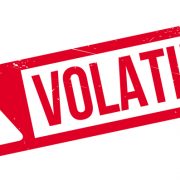Are Your Self-Directed IRA Investments Generating Unrelated Income?
For just about every retirement investor who uses a Self-Directed IRA, most of those investments are exempt from federal income tax. Internal Revenue Code 408, and Section 512 of the Internal Revenue Codes exempts most forms of investment income generated within your Self-Directed IRA from taxation. This exemption includes dividends, loan interest, annuities, rental income from real estate, and gains from the sale of stocks or real estate.
Most investors have never heard of a tax on unrelated income (UBTI) or on income stemming from a debt-financed property that is owned for income-producing purposes (UDFI). These taxes do not apply to them, and they need not concern themselves with them.
But for anyone with a Self-Directed IRA who is considering an investment in real estate, using a loan in a transaction, or investing in a private business operated through a pass-through entity, you should become familiar with the UBTI/UDFI rules.
How can activity in a Self-Directed IRA trigger the UBTI?
According to the IRS, UBTI is defined as gross income regularly generated by a tax-exempt entity via taxable activity unrelated to the entity’s main function. An example of this would be a large manufacturing company that your Self-Directed IRA owns. As long as all activities within the company are related to manufacturing, the income remains exempt. But suppose the company is leasing some of their equipment to other businesses, that lease income could generate UBTI.
Keep in mind the two factors that can potentially trigger the UBTI rules: whether the activity attains the level of a trade or business and whether it is regularly carried on. In the previous example, the manufacturing company was getting regular income from a business (leasing their equipment) that was not substantially related to the exempt status.
Here are some other examples of activities that the IRS could deem to be rising to the level of an active business that is regularly carried on and could be subject to the UBTI rules:
- Business income from the operations of an active business–restaurants, stores, gas stations, etc.–that are operated through a pass-through entity, such as an LLC or partnership. (Remember, any income from a “C” Corporation will not trigger the application of the UBTI tax. This is why most investors are not affected by the tax).
- Using a nonrecourse loan, which means a loan not personally guaranteed by the retirement account owner, to purchase a property.
- Developing or subdividing land and selling a large number of homes or tracts of land from that development in a given period
- Buying and selling a large number of real estate properties within a given year
- Making hundreds of private loans in any given year
Which transactions generate the UDFI?
You can hold rental property in your Self-Directed IRA without creating UBTI. But if your IRA uses debt to purchases the rental property, you could create UDFI. The UDFI taxes would apply only to that portion of the rental income that was derived from the debt. In other words, if the Self-Directed IRA purchases property with 60 percent cash and 40 percent debt, then only 40 percent of the rental income is subject to UDFI. You would then be allowed to use 40 percent of the property expenses to offset rental income.
It is obvious that taxation on unrelated income can get complicated. It is in your best interests to work with professionals, including attorneys and tax advisors, to ensure that you understand the rules of UBTI and UDFI. Using your Self-Directed IRA to invest in real estate is an extraordinary tool as long as you follow the IRS guidelines.
Interested in learning more about Self-Directed IRAs? Contact American IRA, LLC at 866-7500-IRA (472) for a free consultation. Download our free guides or visit us online at www.AmericanIRA.com.






